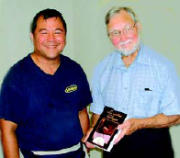Middle East (MNN)–Hezbollah-led protesters paralyzed Lebanon yesterday with a nationwide strike in an effort to topple the government.
Burning tires and cars blocked major thoroughfares and approaches from other areas to the capital city. Young men manned the blockades to enforce the strike.
It was a major escalation in ten weeks of protest from Hezbollah, the Shiite Muslim Party aiming to oust Lebanon’s Prime Minister Fouad Siniora and his pro-Western government. What began as a peaceful protest now looks like a coup attempt, so says by Samir Geagea, a Christian politician who supports the Siniora government.
The good news: Lebanese opposition decided late Tuesday to stop its one-day strike and blockade of roads. SAT-7 staff report that the road to Beirut International Airport is blocked, though the airport remains open. Travelers have no choice but to walk while carrying their luggage a long distance to the terminal.
SAT-7’s Debbie Brink says their staff needs prayer. “We have a hard time knowing how to predict whether tomorrow this will just all go away or whether it’s going to continue to escalate and turn into some kind of civil war, which a number of people thing is possible. But as long as our staff can continue to get to their offices, they will continue to go.”
Since December, most of that production team has been able to get to the studio, however, scheduled guests often have to cancel. Still, the team is making adjustments and planning to continue with their production as best as they can.
That’s been a mixed blessing. Brink explains that the cost of traditional shipping of their programs to the uplink sight in Cyprus was prohibitive, forcing a live programming launched earlier than planned. She goes on to say that the team had been covering the events in the city live and it seemed a good time to move their timetable up to accomodate what circumstances provided.
A receptive audience has been engaging the team as they offers biblical response to the current events. According to Brink, the church is not growing in Lebanon, which makes the consistency of their work even more important. “Lebanon used to be considered the only Christian country still in the Middle East, but they’ve dwindled in the last few years down to about 30-percent. So, I think the more we can do to draw attention to people what it means to be a Christian and see people responding well to the Christians who are reaching out, I think it can only help the church.”
However, according to an earlier release, safety is becoming a growing care. “We’re very concerned for the safety of our Lebanese staff and Board members and this interruption, again, to ongoing and much needed programs,” says Terence Ascott, SAT-7 CEO.

